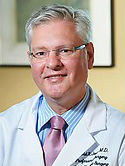The contribution of microvascular free flaps and pedicled flaps to successful chest wall surgery Journal Article
| Authors: | Vanstraelen, S.; Ali, B.; Bains, M. S.; Shahzad, F.; Allen, R. J. Jr; Matros, E.; Dycoco, J.; Adusumilli, P. S.; Bott, M. J.; Downey, R. J.; Huang, J.; Isbell, J. M.; Molena, D.; Park, B. J.; Rusch, V. W.; Sihag, S.; Cordeiro, P. G.; Coriddi, M. R.; Dayan, J. H.; Disa, J.; McCarthy, C. M.; Nelson, J. A.; Stern, C.; Mehrara, B.; Jones, D. R.; Rocco, G. |
| Article Title: | The contribution of microvascular free flaps and pedicled flaps to successful chest wall surgery |
| Abstract: | Objective: Pedicled flaps (PFs) have historically served as the preferred option for reconstruction of large chest wall defects. More recently, the indications for microvascular-free flaps (MVFFs) have increased, particularly for defects in which PFs are inadequate or unavailable. We sought to compare oncologic and surgical outcomes between MVFFs and PFs in reconstructions of full-thickness chest wall defects. Methods: We retrospectively identified all patients who underwent chest wall resection at our institution from 2000 to 2022. Patients were stratified by flap reconstruction. End points were defect size, rate of complete resection, rate of local recurrence, and postoperative outcomes. Multivariable analysis was performed to identify factors associated with complications at 30 days. Results: In total, 536 patients underwent chest wall resection, of whom 133 had flap reconstruction (MVFF, n = 28; PF, n = 105). The median (interquartile range) covered defect size was 172 cm2 (100-216 cm2) for patients receiving MVFF versus 109 cm2 (75-148 cm2) for patients receiving PF (P = .004). The rate of R0 resection was high in both groups (MVFF, 93% [n = 26]; PF, 86% [n = 90]; P = .5). The rate of local recurrence was 4% in MVFF patients (n = 1) versus 12% in PF patients (n = 13, P = .3). Postoperative complications were not statistically different between groups (odds ratio for PF, 1.37; 95% confidence interval, 0.39-5.14]; P = .6). Operative time >400 minutes was associated with 30-day complications (odds ratio, 3.22; 95% confidence interval, 1.10-9.93; P = .033). Conclusions: Patients with MVFFs had larger defects, a high rate of complete resection, and a low rate of local recurrence. MVFFs are a valid option for chest wall reconstructions. © 2023 The American Association for Thoracic Surgery |
| Keywords: | adult; controlled study; aged; primary tumor; retrospective studies; major clinical study; anterolateral thigh flap; donor site; microvascular surgery; plastic surgery; adjuvant therapy; recurrence risk; follow up; edema; pneumonectomy; internal mammary artery; graft necrosis; latissimus dorsi flap; retrospective study; age; pneumonia; lung embolism; postoperative complication; length of stay; graft failure; pneumothorax; thrombosis; operation duration; reoperation; surgical infection; comorbidity; recurrent disease; surgery; chronic pain; hospital readmission; deep inferior epigastric perforator flap; free tissue graft; myocutaneous flap; pedicled skin flap; seroma; soft tissue defect; thorax surgery; wound dehiscence; thorax wall; thoracic wall; thoracic surgical procedures; rectus abdominis muscle; radiation induced neoplasm; abdominal wall hernia; comparative effectiveness; clinical outcome; pleura empyema; free tissue flaps; chest infection; thorax wall defect; microvascular free flap; chest wall resection; thorax wall reconstruction; pedicled flap; methacrylic acid methyl ester; split thickness skin graft; operative blood loss; humans; human; male; female; article; patient history of radiotherapy; chest wall reconstruction; thoracic metastasis; plastic surgery procedures; pyomyositis; thoracodorsal artery; thyrocervical trunk |
| Journal Title: | Journal of Thoracic and Cardiovascular Surgery |
| Volume: | 166 |
| Issue: | 4 |
| ISSN: | 0022-5223 |
| Publisher: | Mosby Elsevier |
| Date Published: | 2023-10-01 |
| Start Page: | 1262 |
| End Page: | 1272.e2 |
| Language: | English |
| DOI: | 10.1016/j.jtcvs.2023.05.018 |
| PUBMED: | 37236598 |
| PROVIDER: | scopus |
| PMCID: | PMC10528168 |
| DOI/URL: | |
| Notes: | Article -- MSK Cancer Center Support Grant (P30 CA008748) acknowledged in PubMed and PDF -- MSK corresponding author is Gaetano Rocco -- Source: Scopus |
Altmetric
Citation Impact
BMJ Impact Analytics
MSK Authors
Related MSK Work



























